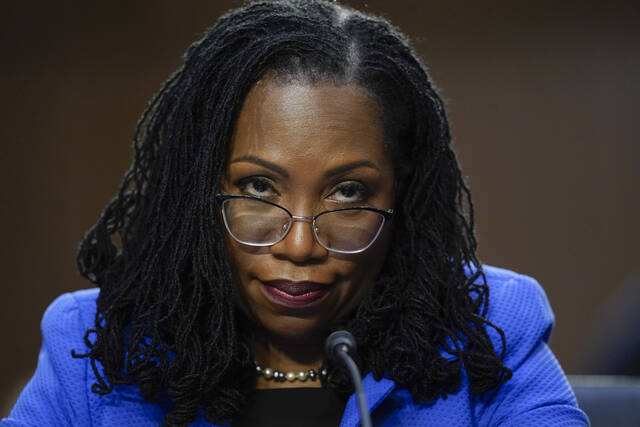“Can you provide a definition for the word ‘woman?’”
Sen. Marsha Blackburn, R-Tenn., asked Supreme Court nominee Judge Ketanji Brown Jackson this question Tuesday during the Senate judiciary committee confirmation hearings.
There have been less obvious traps in Scooby Doo cartoons. Blackburn clearly wanted to coax Jackson to the edge of a proverbial cliff before handing her an anvil like Wile E. Coyote.
The question was not about whether a federal judge who attended Harvard (twice) and clerked for the Supreme Court justice she is up to replace knows the definition of a woman. It was about what that definition would be in 2022, with transgender rights a hot topic and a potential issue before the court.
Rather than step off that cliff myself, I prefer to take a time-honored response to questions people don’t like. Ignore them, and substitute an answer to the question you wish you had been asked.
What makes someone a woman? I don’t mean on the cellular level, by a parsing of chromosomes or an evaluating of biological signifiers.
No, the word woman indicates maturity. It denotes a grown-up. It speaks to someone who has achieved a certain age, perhaps a stature.
I fly in the face of many a feminist by frequently using terms like girls or ladies — even chicks — to describe the female of the species, regardless of age. Woman can seem older, stronger, intimidatingly large. There is an authority to “woman” that I can back away from in common conversation in favor of gentler terms.
My grandmother, my mother, my aunts, my teachers, my first editor. These were or are women. They embody things like duty and responsibility. They offered strength in various forms: love, discipline, knowledge, example.
In my mind and in my history, being a woman is something that I equate with a quality of carrying on. There have been plenty of ladies whom I have liked or girls I have respected who seemed too soft or too brittle for the word woman — just as I have known many a person I would struggle to call a man but easily term a guy.
On Wednesday, Madeleine Albright died at the age of 84. She was the first woman to serve as U.S. secretary of state. Under 5 feet tall, Albright was nonetheless a towering presence on a world stage and left an example that has been worth following for the men and women of both parties who have followed her in the role. If we must have a definition, perhaps she is it.
I don’t want to fight pointlessly, pointedly staged battles about what a definition means when for some it is as broad as belief and for others as narrow as DNA.
Why, instead, can’t we appreciate that women contribute to our world every day in courtrooms and Congress, in schools and hospitals, in businesses and boardrooms? And let’s not forget our homes. Why can’t we celebrate that our world is a richer, better place for the contribution of women and continue to make that world a place that accepts women for who they are without setting traps?











